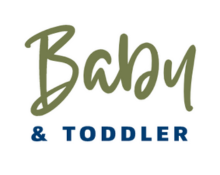
Breastfeeding provides a wide range of benefits for babies. Here are some of the key advantages of breastfeeding:
Optimal nutrition: Breast milk is a complete and highly nutritious source of infant nutrition. It contains the perfect balance of carbohydrates, proteins, and fats, along with vitamins, minerals, and antibodies that help protect against infections and promote healthy growth and development.
Immune system support: Breast milk contains antibodies, enzymes, and immune cells that help strengthen a baby’s immune system. These components help protect against various illnesses, infections, and diseases, including respiratory infections, ear infections, gastrointestinal infections, and allergies.
Digestive health: Breast milk is easily digested by a baby’s immature digestive system. It reduces the risk of digestive issues such as constipation and diarrhea. Breastfed babies also have a lower risk of developing conditions like gastroenteritis, necrotizing enterocolitis (NEC), and inflammatory bowel disease.
Reduced risk of infections: The antibodies and immune factors present in breast milk provide protection against a wide range of infections. Breastfed babies have a lower risk of respiratory infections, urinary tract infections, ear infections, and bacterial and viral infections.
Brain development: Breast milk contains essential fatty acids, such as DHA (docosahexaenoic acid), which are crucial for the development of a baby’s brain and nervous system. Breastfed babies have shown improved cognitive development and potentially higher IQ scores later in life.
Reduced risk of chronic diseases: Breastfeeding has been associated with a decreased risk of certain chronic conditions later in life, such as obesity, type 1 and type 2 diabetes, asthma, allergies, and certain childhood cancers.
Optimal growth and weight control: Breastfed babies have a reduced risk of obesity and tend to have better weight control compared to formula-fed babies. Breast milk composition adjusts naturally to meet the changing needs of a growing baby.
Oral development: Breastfeeding promotes proper jaw and dental development due to the sucking action required to extract milk from the breast. It can help prevent issues like malocclusion and promote healthy oral muscles and tooth alignment.
Emotional bonding: Breastfeeding fosters a strong emotional bond between a mother and her baby. The skin-to-skin contact, eye contact, and close physical connection during breastfeeding contribute to a sense of security, comfort, and emotional well-being for the baby.
Convenient and always available: Breast milk is readily available, at the right temperature, and requires no preparation or equipment. This makes breastfeeding convenient and accessible, ensuring that the baby’s nutritional needs are met at any time and place.
It’s important to note that every breastfeeding journey is unique, and the benefits can vary depending on individual circumstances. It is recommended to consult with healthcare professionals or lactation consultants for personalized advice and support to optimize the breastfeeding experience for both mother and baby.
